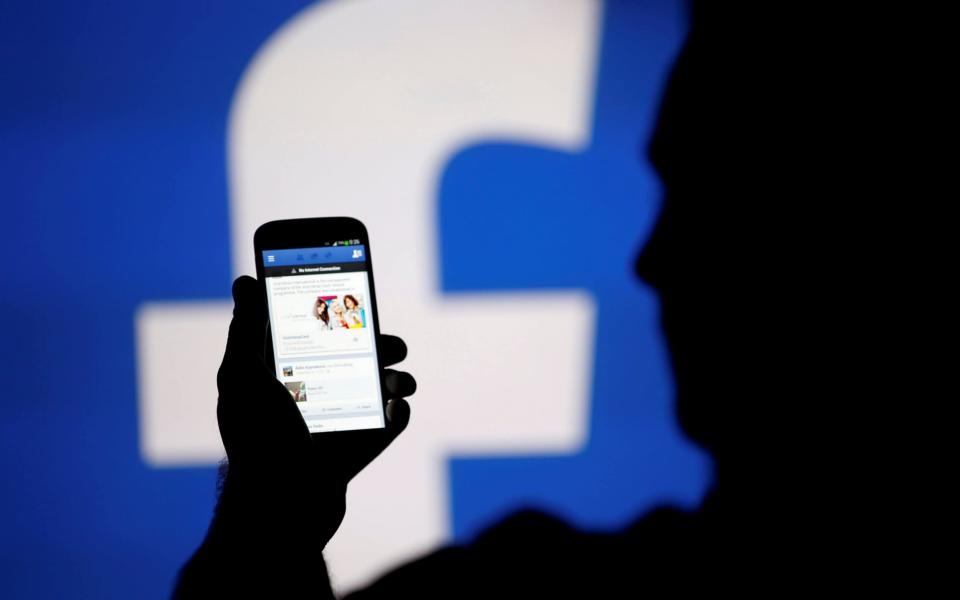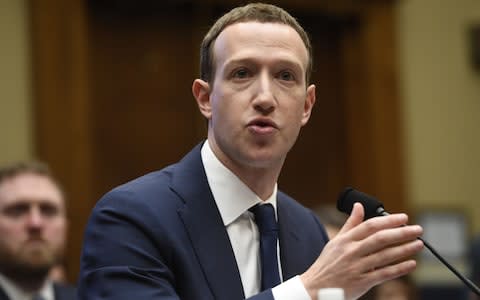Facebook 'like a priest that sells access to the confession booth', says ex Google designer

Google’s former smartphone aficionado has warned British MPs that Facebook is operating like a “priest’s confession booth” that sells private admissions to other people.
Many of its two billion users are unaware that the social network is monitoring as its algorithms track conversations and behaviour on and off its website and app, said Tristan Harris, appearing by video link before the Digital, Culture Media and Sports Committee.
He said: “Facebook is the priest that sells access to the confession booth”, adding that “people do not realise they are making a confession to a priest with a supercomputer by its side”.
“This is an enormous and new species of power that we have never seen before and we need to have special ways of reining in that power.”
Mr Harris, who now campaigns for more ethical technology, suggested taxing companies that used behavioural analytics to target users with advertising in the same way that governments have stepped in to limit the harm from tobacco sugar products.

“The dangerous thing is that artificial intelligence will allow you to predict things about human animals that they do not know themselves,” Mr Harris warned. “We can point supercomputers at climate change and drug discovery, but I don’t think we should be pointing them at human beings and definitely not with the priest that sells access to the confession booth”.
Mr Harris suggested a way to counteract this would be by creating several tiers of Facebook, including an opt-in for targeted advertising which would grant free access, and a premium version where the “priest didn’t sell confessions”.
Mr Harris, who left Google in 2016, co-founded a startup called Apture which was bought by Google in 2011, and claims to have extensive knowledge of the tricks used by companies to grow its user base, which he compared to “magic tricks” and “slot machines”.
During Tuesday’s evidence session, Mr Harris told MPs that social media as a whole posed a risk to the general public and that “there are ways that Facebook endangers public health”.

He said: “We are evolved animals and we have a limited brain and mind and certain vulnerabilities, and if you took a human animal and you made it wake up and made them look at photos of friends having fun without them, that would have an impact on any human being.”
He also alleged that Facebook was fully aware of its power to “hijack people’s minds”, describing founder Mr Zuckerberg as having created a Matrix-like world where its two billion users “are jacked in” from when their smartphone alarm wakes them in the morning, and they check their notifications, until they set their alarm at night.
The Silicon Valley resident, who was a student at Stanford University when Mr Zuckerberg created Facebook in his Harvard dorm room, also suggested that employees at Facebook were aware of how addictive and manipulative their product was because they admitted they could reduce the amount of time people spent on Facebook.

He said: “They could make the news feed as addictive as possible, and they could make it the least addictive …They are testing it on machines and they don’t want to admit that they are setting the dials, but every choice they make, they are deciding how compelling the news feed is.”
Some of these techniques are borrowed from traditional casino and magic tricks, he revealed.
He used the example of stopping cues, which might be the bottom of a glass when drinking a glass of water, or the end of a film while watching television. Facebook has removed the stopping cue by adding eternal scrolling on its news feed. Other social media techniques include prompting friends to tag a user who has been dormant for some time, so they receive an email and it appears as if that friend had been trying to get in touch, when really it was just Facebook acting as a “puppet master”.

 Yahoo Finance
Yahoo Finance 